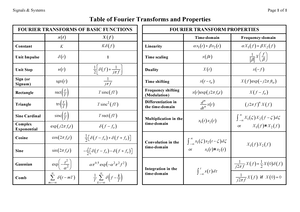- Information
- AI Chat
Was this document helpful?
Syllabus.State Society Relations
Course: State and Society (PS4224)
13 Documents
Students shared 13 documents in this course
University: National University of Singapore
Was this document helpful?

PS4224
PS4224: State and Society: State-Society Relations
Semester II, AY 2019-20
Seminar meets on Tuesdays from 3pm to 6pm in AS1-0302.
Instructor: Kevin McGahan
Office: AS1, level 4, room 34
Office Hours: By appointment
Email: polkm@nus.edu.sg
Description:
This honours-level seminar critically examines historical and theoretical issues of state-society
relations, such as state-formation processes, ethnic and national identities, social movements,
patron-client relations, and democratic-authoritarian transitions. This module also interrogates a
range of contemporary topics, including migration, security, human rights, environmental
degradation and social media. The class, furthermore, debates these issues from various
approaches that highlight different actors – including both states and non-state actors. While the
class is global in scope, it focuses on state-society relations in particular areas of the world by
employing comparisons. Empirically speaking, many class materials focus on countries in Asia,
broadly defined (e.g., China, India, Thailand, Burma/ Myanmar, Indonesia, the Philippines,
Malaysia, and Singapore). Nevertheless, students are encouraged to compare and contrast these
cases with historical ones or others outside the Asian context, as appropriate.
Goals:
By taking this seminar, students will learn and apply basic theories and concepts to examine
state-society relations in both a local and global context. Such concepts notably include the
nation/state, patron-client relations, ethnic, religious, and national identities, and social
movements. In addition, students will leave this module with critical thinking and
communication skills, as the class will challenge and discuss various assumptions about different
state-society relations around the world. Lastly, students will reflect upon and apply their
insights about the importance of such relations for both personal and academic development.
Requirements and Evaluation:
This class is based on an interactive process between the instructor and students. As such,
seminars are largely focused on student-driven discussions. To facilitate this process and ensure
active student participation, I will expect students to have completed the required readings before
the seminar meets.
Also, please note that if you have any documented disability, contact me immediately. I am
happy to accommodate students in maintaining an appropriate learning environment.
1. Participation
Students will be graded on their participation, which is premised on regular attendance and
interactions during seminars as well as weekly discussion questions. For their weekly questions,
at least 24 hours before each seminar meets, students must post on LumiNUS (under the student
submission folder) at least one question that critically engages central concepts and arguments
Students also viewed
Related documents
- S&S-Tut-01 (Prob) - NAasdasds asndasdn asjdnalsd asldn alsjdnalsjdn alsjdnalsdn asldjan sldjasndlasd
- Renewable Energy Assignment - Wind Energy
- Eg2401a THLee Lecture 03 Sem2u asd asdas
- Week 5asd asd asd NAasdasds asndasdn asjdnalsd asldn alsjdnalsjdn alsjdnalsdn asldjan sldjasndl ajsdn lasjdnlajsndla jsndlasndja lsdjansldjn.
- How to Day Trade for a Living A Beginner’s Guide to Trading Tools and Tactics, Money Management, Discipline and Trading Psychology ( PDFDrive )









